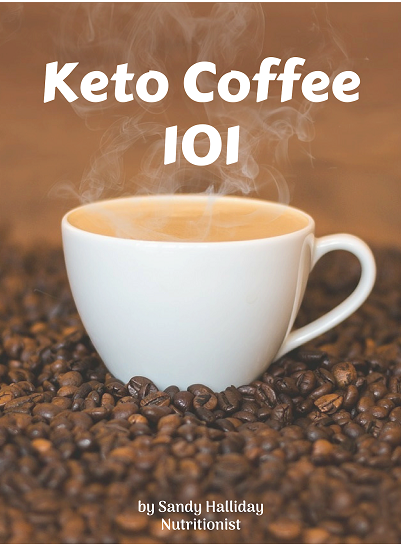Many people are admitting to emotional eating during this unprecedented lockdown situation due to the Covid-19. Emotional eating, as you probably know, is the practice of managing one’s emotions by eating food.
If this has happened to you and you want to be able to stop it then this article will help you find out more about this sort of eating and how to rectify it.
What causes emotional eating?
Major changes in circumstances, relationships, work dynamics, daily stress, and general feelings of a loss of control can be major factors. Well, let’s face it, the present coronavirus pandemic could cause all of those!
Another example would be a recent break up could drive a person to emotional eating. A sudden change in the manner of a previously cordial coworker could leave you feeling alienated.
Or the daily ebb and flow of life’s daily activities could put you in mood where food is thought of as a reward, a way to relieve stress, or way to avoid dealing with emotions surrounding a situation.
How do you detect emotional eating?
There are a few differences between the type of hunger that comes from emotional needs, and that of physical needs. Physical hunger is gradual, and eating fulfills the need for nourishment. When you eat after having been physically hungry, you will most likely feel better or more energized.
When the hunger is emotional hunger, eating may not give you the feeling of being filled, which can lead to overeating. At the end of the meal, you might feel tired, or depressed, but there are even more long term effects that can come from emotional eating.
Another scenario which people are finding themselves in during this quarantine is mindless eating out of sheer boredom.
How can emotional eating affect you?
Along with the emotional effects already mentioned, there are a number of health risks associated with emotional eating. It is one of the leading causes of failed diets and weight gain.
You Tend to Eat Unhealthy Food
Often times these powerful cravings are for sugar and fat filled snacks because of the powerful rush that is experienced after consumption. Seeking out comfort food or food that is connected with positive or nostalgic feelings has been common practice for all of recorded history.
Related reading: 6 Damaging Effects of Sugar on your Body
Many snack foods (especially candy and baked goods) are associated with memories of fun times or loved ones. Some children develop early obesity when they learn this type of self soothing. The methods that are used to produce foods of these types typically contain high levels of salt, sugars, fats, preservative agents and additives.
Weight gain puts a heavy strain on organs such as the heart, lungs, and liver, which can lead to high blood pressure and diabetes. Yet, not only internal organs are at risk. A person who has gained a substantial amount of weight faces an increased risk of joint injuries of all types.
A slip or fall could result in a serious injury that requires surgery, and many months of healing, but what is even more frightening is the fact that a lot weight gain could make it more difficult, or even prevent emergency medical teams from being able to respond in an efficient or timely manner.
Also it’s known that fat cells release inflammatory chemicals which leads to a chronic low grade inflammation in the body. This is the condition that doctors now think leads to the high death rate of people admitted to hospital with Covid-19.
How to Find Your Triggers
By now you will understand that emotional eating is unhealthy and can make you vulnerable to various complications, but where do you go to learn what causes lead to these habits? Here are some tips on how you can avoid the triggers.
Trigger Foods
Some foods trigger powerful cravings and memories that send a person into a state where they don’t consider what they are putting in their body.
Strong emotional, or cultural identification with specific foods can begin at an early age, so these habits can become very deeply embedded into an individual’s identity.
Marketing research companies spend billions of dollars learning how to connect the emotions of the consumer to their products, so thinking about the kinds of food you consider are very important.
One extremely effective tool that you can use to help you find out what is happening with your eating habits, is to begin keeping a journal. More on this further on.
Trigger Emotions
As you write what kind of foods you eat, it’s also good to make a note of how you’re feeling at the time of the craving. Strong emotions of any kind can affect how you chose to go about your eating habits during meal time, and it’s important to note that they can be both positive and negative emotions.
When a person is emotionally eating, it frees the mind of the burden of focusing on issues and allows for an escape. It can also provide a pleasurable experience that allows the eater a feeling of being rewarded.
Studies have shown that food can light up the same areas of the brain that react in drug addiction, so that means that serious thought and planning must go into combating these habits.
Trigger Environments
Last, and certainly not least, is your environment. This can cover a wide variety of variables such as who you are spending time with, where you are located, and what kinds of events are taking place.
Some people find public situations highly stressful, while some others may find spending time alone to be stressful. It’s quite common to overeat when you are alone, but everyone is different.
This is another reason why keeping a journal can be very helpful, because it enables and empowers you to take an honest look at your triggering factors. Recording this information can expose a pattern and help you overcome the difficult habit of emotional eating.
Tips For Putting a Stop To Emotional Eating
People often say that the first step to conquering any habit is recognizing that there is a problem, but what can you do to change or stop the behavior? In this next section we’ll be looking at some tips on how you can put a stop to emotional eating.
Take Notes
As already mentioned one very effective way to find out the what, where, and when of emotional eating is to start keeping a journal. Many of the urges for emotional eating stem from the subconscious, so keeping a journal will be a powerful tool in discovering what the circumstances or experiences may be that lead to a session of emotional eating.
Write down every time you decide to eat. Document details of the events by asking yourself questions. How hungry were you on a scale of 1 – 10? Where were you when the eating took place. Were you at work, school, home or out in public? Were you with friends, loved ones, coworkers or alone? You might be surprised to find that subtle, yet visible patterns emerge.
Take Action
After you’ve spent some time taking notes, compiling information, and asking yourself key questions, you may find what some of the major triggering events might be. If you have asked yourself the questions and found that you were less than a 6 in hunger, and cravings appear during specific situations, you could be stress eating.
One of the easiest ways to quit almost any habit is to simply replace the unhealthy behavior with healthy behavior. For example, you can keep healthy, low calorie and low carb snacks handy.
Related reading: 5 Healthy Snacks that Kill Sugar Cravings
If you’ve put on unwanted pounds during the periods of emotional eating or have cravings for unhealthy sweet foods then you might consider following the keto diet.

Not only is it a good way to lose weight relatively quickly but it also reduces cravings. The majority of people are pleasantly surprised by the way it keeps hunger at bay.
Related reading: How a Low Carb High Fat Low will Reduce Food Cravings
There are also some delicious teas which contain nutrients that help curb hunger, aid metabolic function, and a few like black tea are known to lower stress hormones by nearly half during consumption.
Exercise and deep breathing
Alternatively, other methods such as exercise and deep breathing can be very effective in managing stress in the moment, or at the end of your day. Shallow breathing has been found to increase stress in the body, so spending the time to allow your body a chance to concentrate on breathing can lead to many health benefits.
Exercise and breathing go hand in hand, so a healthy regimen can go a long way to putting you on the path to success.
Final Thoughts
Life is easier with fewer temptations around. Remove unhealthy junk food and snacks from your cupboards. Don’t just hide them because you will still know where they are.
Replace them with some healthy options. You can satisfy the urge to snack but you will supply your body with healthy nutrients that have probably been depleted through unhealthy emotional eating.
When you have the trigger to eat when you are not hungry take time to pause and notice what emotion is coming up. Is it boredom, anxiousness stress or loneliness? When are able to put a name to the feeling you will able to work through it and stop emotional eating for good.









